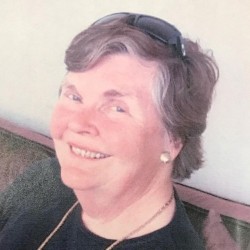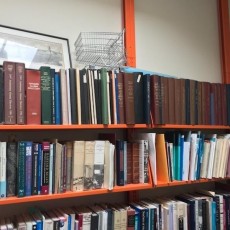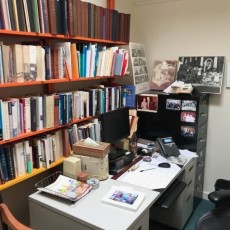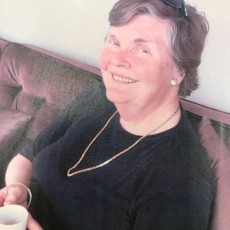Patricia Albjerg Graham

Patricia Albjerg Graham is Charles Warren Professor of the History of American Education Emerita in the Graduate School of Education at Harvard University. Having earned her bachelor’s degree with highest distinction from Purdue University, Graham began her early career as a high school English and history teacher in Deep Creek, Virginia. Although she had initially intended to pursue a career in journalism, Graham was “hooked on schools” after her first year in the classroom. Prompted to earn a master’s degree (Purdue University), she also taught in schools in Norfolk County, Virginia and New York City. She even continued to serve as a guidance counselor while pursuing her doctorate (Ph.D., Columbia University). Graham’s distinguished academic career as a historian of education has since spanned more than five decades, which includes holding positions as a lecturer and assistant professor at Indiana University, visiting professor at Northern Michigan University, and tenured faculty member at Columbia University (with concurrent appointments at Barnard College and Teachers College) and then at Harvard University. As a teacher, educational researcher, and scholar, she is widely recognized for her work on the purpose of schooling, trends in American education in the 19thand 20th centuries, higher education, women in the academy and women’s studies more broadly, and school reform. Past service roles as the first female Dean of the Harvard Graduate School of Education, Director of the National Institute of Education (a presidential appointment), and President of the Spencer Foundation are among her many contributions to the field. Graham has received numerous awards and honors including the Distinguished Service Award (1978, Teachers College) and election as a member (1979) and later President of the National Academy of Education (1985-1989) as well as 17 honorary degrees from national and international colleges and universities. Throughout her career, she has written numerous articles and other scholarly publications in addition to seven books, including: Community and Class in American Education, 1865-1918 (1974), O.S.: Sustain Our Schools (1992), Accountability of Colleges and Universities (1995, with R. Lyman and M. Trow), The Knowledge Economy and Postsecondary Education (2002, with N. Stacey), and Schooling America: How the Public Schools Meet the Nation’s Changing Needs (2005). Through her larger body of scholarly work, Graham continues to provide insight on the historical roots, present challenges, and future needs of America’s schools and universities.
For more information, visit Patricia Albjerg Graham’s Website. To view photographs from Patricia Albjerg Graham’s personal collection, visit her Photo Gallery.
Video Interviews with Patricia Albjerg Graham:
Born as the fourth child born to well-educated parents, Dr. Patricia Albjerg Graham recalls her experiences growing up in the college town of Lafayette, Indiana. Unlike her parents, both of whom had earned doctoral degrees and taught at Purdue University, Graham explains that she “hated school” and describes compulsory attendance as “the biggest bother.” After discovering at the age of 16 that she had earned enough credits to drop out of school while still earning her diploma, she remembers informing the school principal of her intentions, passing the necessary typing test for secretarial work, and securing an entry-level job all in the same day and before even telling her parents of her decision. Vividly recalling her excitement as a first-year college student at the University of Wisconsin – Madison and the disappointment of her return home to care for her ill father, Graham describes becoming a teacher as her “last choice in the world.” In this clip, hear more from Dr. Graham about her experiences teaching in a small, rural high school with a notoriously high drop-out rate and dismal record of sending students to college.
Remembering her first year as a teacher at a “rough and tough school” in rural Virginia, Dr. Patricia Albjerg Graham recalls her frustration with students’ behavior, admitting that she “threw a temper tantrum” about six weeks into the school year. After her stern lecture to the students, she notes remarked improvement in their behavior and subsequent gains in learning. She characterizes these early successes as changing the course of her career, sharing as an example her initial trepidation at directing a class play and astonishment when her students won second place at the state-level drama competition. Helping her students add two new trophies to an otherwise nearly empty trophy case at the school inspired her to continue as an educator. Admittedly “hooked on school” after that first year in the classroom, Graham shares her passion for teaching, explaining that giving disadvantaged children a quality education can change their lives. Watch this clip to learn more about Dr. Graham’s first course as a doctoral student at Columbia University and her personal and professional journey as a historian of education in the academy.
Dr. Patricia Albjerg Graham describes her experiences as a female scholar in higher education, noting that her entry into university administration required savvy negotiation skills, first to secure tenure at Harvard University and then to represent Radcliffe College and advocate for its unique contribution to women’s education. Despite recognition as a leader in the otherwise male-dominated academy, Graham recalls her surprise when offered a presidential appointment as the Director of the National Institute of Education at the Department of Health, Education, and Welfare. Reflecting on her subsequent return to higher education, she characterizes her decade of service as the first female Dean of the Graduate School of Education at Harvard University as a “busy” time in her career. In this clip, learn more from Dr. Graham about the historical challenges facing female scholars, who were often recruited to faculty positions with little more than “babysitting money” for compensation.
Sharing the background and inspiration for her most sentimental and impactful books, Dr. Patricia Albjerg Graham explains the importance of schooling as “good for rich kids but vital for middle class and poor children.” Characterizing the past century of American education history as divisible into four major periods first focused on assimilation and most recently academic achievement, she suggests children’s accomplishments must be the focus of the future-schools need to foster wit and character to cultivate “a citizenry of which we can be proud.” Graham adds that she remains concerned about the critical need for teachers who can build relationships with their students in addition to helping them learn. Suggesting that a connection with someone who cares makes all the difference for disadvantaged students, she notes that teachers need to understand the history of schooling and its connection to families and communities in order to prepare them for today’s classrooms. Watch this clip to hear more from Gr. Graham about the challenges of working in schools with unhappy children, frustrated teachers, and inconsistent leadership and what can be done in schools of education to better attend to these problems.
Dr. Patricia Albjerg Graham shares her mother’s story as a female scholar in the mid-20th century as the inspiration for her own research on the experiences of women in the academy. Actively involved with female peers through professional associations, Graham recalls questioning “what it means to be a woman in higher education” and seizing opportunities to help facilitate the integration of women into the highest faculty and administrative positions at elite institutions. Adding that while there has been considerable improvement, she notes that significant problems remain as evidenced by the concentration of females in the lower faculty ranks. Watch this clip to hear Dr. Graham’s candid discussion about the challenges still facing women seeking academic careers.
Reflecting on the influence of her parents, husband, daughter, mentors, and colleagues on her personal and professional journey, Dr. Patricia Albjerg Graham continues to advocate for education and support meaningful research efforts in the public and private sectors in the United States and abroad. Despite having taught and conducted research in some of the nation’s most elite institutions, she cites her early experiences as a classroom teacher in a small, rural high school in Deep Creek, Virginia as the most profoundly impactful in her career. She remains inspired by the successes of her first students and hopes her work will continue to help low-income children “have a better shot than they have now” at success in school. Watch this clip to learn more from Dr. Graham as she advises graduate students and early career scholars to “be grateful and work hard” to make a difference.















